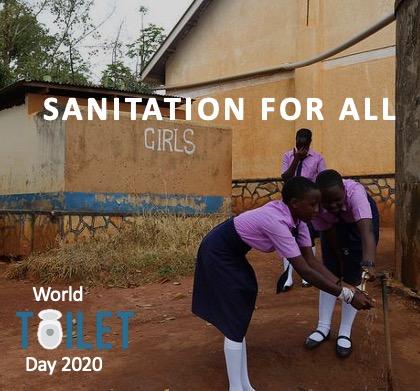It’s estimated that one in ten girls in Africa miss school during their period from lack of access to toilets and washrooms and as we know sanitary products. We estimate that this figure is much higher in poor rural areas with the vast majority of schools having no running water near the toilets or hand washing facilities with soap. This has been especially problematic during this pandemic.
Girls and women need privacy to manage their period without shame and there is an ongoing challenge to provide hygienic spaces where girls can deal with their period with freedom and reduce the risk of abuse and rape. By having access to private and safe toilets, girls can continue their education in school and this leads to increased options for employment, shaking off the burden of poverty.
Providing a water supply and toilet is one of humanity’s greatest opportunities. That’s why it’s not just a toilet, it’s a lifesaving, health-improving, GDP boosting, gender empowering, engine of human potential.
This United Nations World Toilet Day highlights the 4.2 billion people living without safely managed sanitation. We need to take action to tackle the global sanitation crisis and achieve Sustainable Development Goal 6: water and sanitation for us all by 2030.

